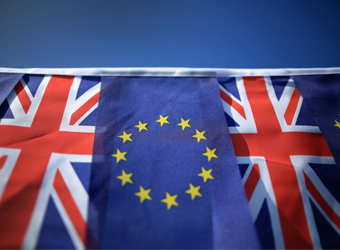The United Kingdom was second only to the United States as a destination for foreign investment in 2016, according to figures released on Wednesday by the United Nations, which warned it is too early to judge how the vote in June to leave the European Union (EU) affected business sentiment toward the country.
Figures released by the United Nations Wednesday recorded a 13% drop in overseas investment by businesses around the world last year, a fresh sign that globalization has slowed. But both the U.S. and the U.K. bucked that trend, with the latter recording a surge in foreign direct investment, or FDI, to $179 billion from $33 billion that moved it up the rankings from 12th in 2015. By contrast, foreign investment in Europe as a whole fell by 29%.
In advance of the U.K.’s referendum, campaigners in favor of remaining in the EU argued that foreign businesses would be deterred by the prospect of new trade barriers with the rest of the bloc. The U.K. government has yet to initiate the two-year process that will lead to the country’s departure, but the scale of the inflows of investment in 2016 suggest foreign businesses were not scared away by the uncertainties surrounding the Brexit vote.
“The significant impact of Brexit on FDI in the UK has not yet been fully reflected in the FDI numbers for 2016, as the actual post-Brexit business climate is largely unpredictable at this stage,” said James Zhan, director of the UN Conference on Trade and Development’s investment and enterprise division. “Most of the firms are more in the mode of putting in place contingency plans than taking actions. The data for 2016 reflect the mega-deals that were underway already prior to the referendum.”
A large proportion of the U.K. investments counted by UNCTAD for 2016 involve the foreign purchase of large businesses that while based in the U.K. conduct much of their activity globally. They include the $101 billion purchase of SABMiller PLC by Anheuser-Busch InBev NV, which is based in Belgium. At the time of the acquisition, SABMiller had substantial operations in the U.S., China, Europe, South America, Australia and Africa that would probably not be affected by any new trade barriers between the U.K. and the rest of the EU.
UNCTAD said little of the foreign investment recorded last year was in startup operations, which are known as greenfield projects.
It expects global investment flows to pick up by as much as 10% this year, aided by an acceleration in economic growth and a recovery in commodity prices. But it warned that potential changes in trade and investment policies in the U.S., the U.K. and elsewhere could hinder that rebound.
“There is…substantial uncertainty about the shape of economic policies in the near-future, especially in developed economies, which may serve to dampen FDI,” UNCTAD said.
Mr. Zhan said there was “an emerging trend” toward government measures that seek to dissuade businesses from investing overseas, or encourage the return of operations previously relocated to other countries.
“In light of the concerns over job losses, some governments are trying to introduce measures to retain investment at home,” he said.
The 2016 drop in global foreign investment coincided with rising popular opposition to globalization, a process that took off from the 1980s and has seen many large companies spread their activities and associated jobs across an increasing number of countries, creating what are known as “global value chains” and boosting international trade.
Many economists believe that has aided global economic growth by helping locate production where it is most efficient and increasing competition while also helping to spread new technologies and know-how. But critics say the benefits haven’t been shared equally, with low-skilled workers in developed economies seeing their incomes stagnate even as large numbers of people in developing economies have seen their wages rise.
Source: MarketWatch
